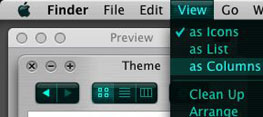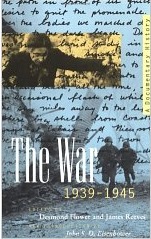 Foyle's War
Foyle's War
Foyle's War is, simply put, great. The writing and acting are compelling, the complexity of the stories is just right. Most of all, it totally nails the cultural context and background aspect for me: the first episode dealt with German citizens living in Britain, the second dealt with British anti-Semites/fascists (Foyle's assistant, a wounded veteran of the failed Norwegian defense in April 1940, isn't so sure those guys are completely wrong, which makes things very interesting), and the third dealt with conscientious objectors and pacifists. Throughout each 90-minute episode is weaved other details of the war experience in Britain, from general anxiety about an impending German invasion, to working-class fishermen racing to rescue anyone they could find off the beaches of Dunkirk to a secret coffin-making factory (preparing for the Blitz). Foyle's son is also a new recruit in the RAF, so all in all it's a very rich setting. All three primary contexts are also just the kind of history I'm interested in regarding the war years, and it's so far been a refreshing change from the rah-rah-yet-weepy rhetoric about the "Greatest Generation."
Posted: Fri - November 4, 2005 at 03:37 PM
| Sun | Mon | Tue | Wed | Thu | Fri | Sat |

"Pulsar Silver 1.1"
Pete's Recent Reads:
Gerald Weinberg, A World At Arms: A Global History of World War II
Jared Diamond, Guns, Germs, and Steel: The Fate of Human Societies
Neil Stephenson, Quicksilver: Vol. 1 of the Baroque Cycle
Merrill Peterson, The Great Triumvirate: Webster, Clay, and Calhoun
John Ferling, A Leap in the Dark: The Struggle to Create the American Republic
Maynard Solomon, Beethoven
9/11 Commission Report
David Carle, Water and the California Dream
Mary Gentle, Carthage Ascendant: The Book of Ash, Vol. 2
Kevin Starr, Embattled Dreams: California in War and Peace, 1940-1950
Stephanie S. Pincetl, Transforming Calfornia: A Political History of Land Use and Development
Blake Gumprecht,
The Los Angeles River
Kevin Starr,
Endangered Dreams: The Great Depression In California
Buy 'Em At Amazon.com
(get Pete some new shoes!)
Macfixit
ECHO: a music-centered journal
PeteOfTheStreet Pics
Pillsbug Music
Google Me
Cecilia's Knitting Page
Digital Medievalist: Scéla
Jasmin's Page
Total entries in this category:
Published On: Nov 05, 2005 11:41 AM

